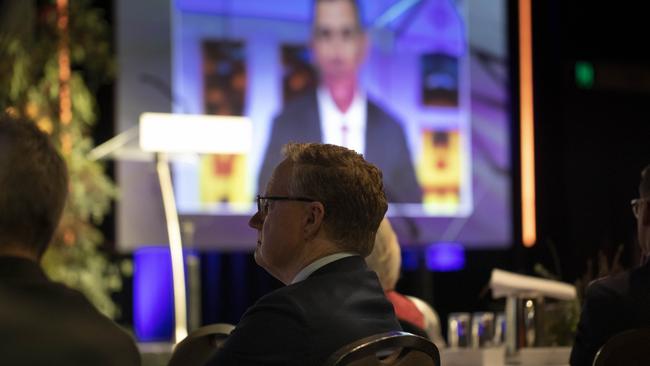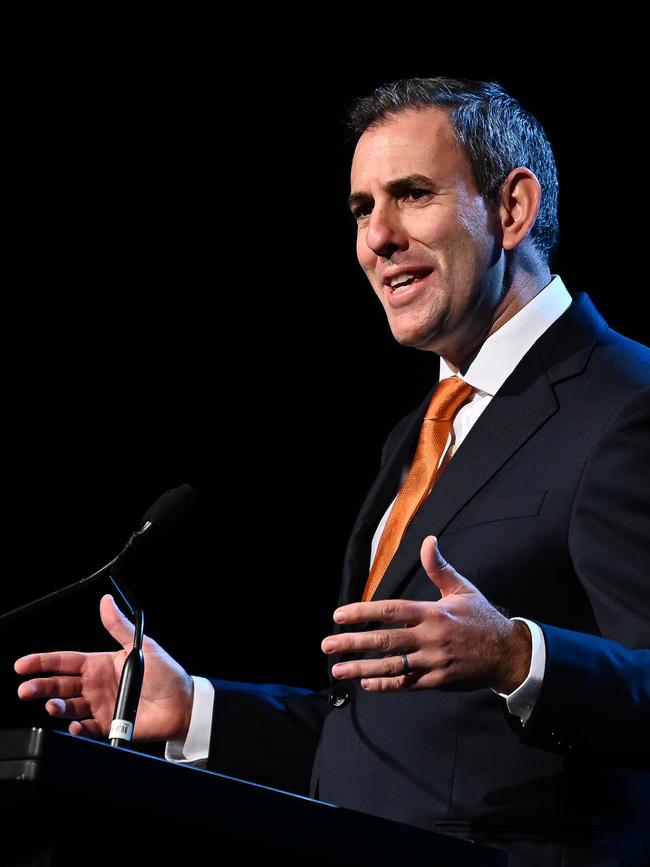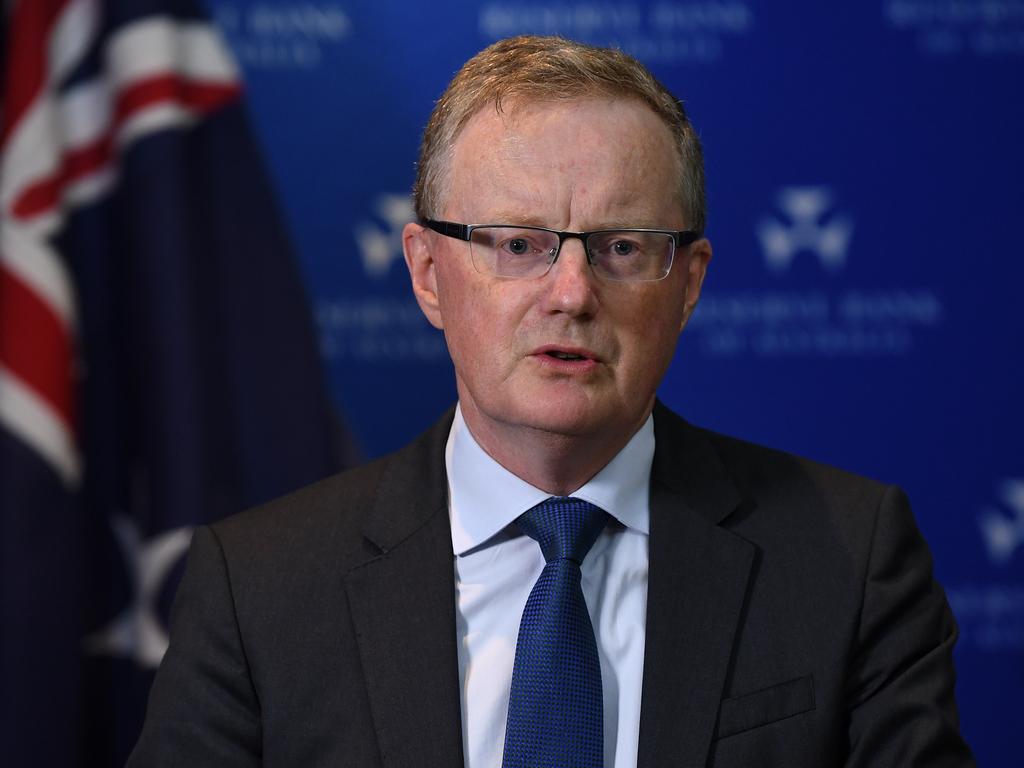
Less than two months ago, we were told the budget surplus for 2022-23 would be $4.2bn. It turns out that in the 11 months ending in May, the surplus was actually $19bn.
It’s odds-on to a dollar the final figure will be well in excess of $20bn. It’s like picking up a Bank Error in Your Favour card; only in this case, it’s a massive error.
It’s actually hard to understand how the officials could get it so wrong.
After all, there are only two main factors affecting the budget bottom line at this stage: income tax revenue and commodity prices. With Single Touch Payroll, the Treasury should have a very accurate estimate of where income tax revenue is heading and anyone can find out, on a daily basis, what is happening to commodity prices.

Of course, it’s understandable that Treasury didn’t want to over-estimate the surplus, but to be wrong by this much is a complete embarrassment. But it does underscore the point that economic policy is currently in a complete muddle.
Unfortunately, Jim Chalmers is only too happy to play political games with the independent Reserve Bank of Australia when he and the bank should be on the same page. The 12 increases in the cash rate that the bank has applied since 2022 have doubtless caused pain for the community although the impact is quite uneven.
But this is the price of fighting inflation the costs of which are even higher in the long term and more pervasive in their effect. It’s a point the Treasurer should be making time and again.
It’s why inflation targeting was implemented all those years ago, to ensure the bank had a laser-like focus on achieving inflation of between 2 and 3 per cent over the medium term. This is actually more flexible than the arrangements that apply to many other central banks – 2 per cent is common and timeframes are sometimes stipulated.

The fact Chalmers has been reluctant to publicly support the bank’s recent decisions is problematic. His side remarks to the effect that voters should blame the bank not him are particularly unhelpful.
The contrast with British Prime Minister Rishi Sunak is stark, even in the context of large increases to its official interest rate, which, incidentally, is much higher than ours. He publicly supports the Bank of England.
The reality is that many members of Labor’s caucus are aghast at the Reserve Bank and Philip Lowe’s governorship.
They don’t like his message about the current danger of wage increases not supported by productivity growth.
Some wonder if inflation is really that bad if cost-of-living measures can be implemented that take the pressure off Labor’s key constituents – large, mandated wage increases, budget measures, even price caps. They fully support the equal weighting of inflation and full employment that was recommended in the recently released external review of the Reserve Bank.
Talking about the review – entitled An RBA Fit for the Future – Chalmers must be close to deciding where to head, including on the issue of the weighting of inflation and full employment.
Chalmers has already ignored one of the review’s key recommendations, that new appointees be selected “through a transparent process”. It is proposed that “positions should be advertised for expressions of interest, drawing on a matrix of required skills and experience. A panel comprising the Treasury secretary, the governor and a third party should recommend options for suitable candidates to the Treasurer.”
The recent RBA appointments of Elana Rubin, a former ACTU official, and Iain Ross, former president of the Fair Work Commission, were simply announced by the Treasurer, with both appointees expected to join the monetary policy board.

Given their backgrounds, it’s also difficult to square their appointments to the MPB with the recommendation of the review that the appointees have expertise in “open-economy macroeconomics, the financial system, labour markets or the supply side of the economy”.
This said, the Treasurer would be wise to tread warily about some of the review’s recommendations that would make good script material for an episode of Utopia.
They include:
• The RBA should further empower its staff and raise the dynamism of the organisation.
• Annual externally facilitated 360-degree feedback mechanisms for managers with subsequent leadership coaching services.
• Enabling external hires through improved onboarding (is this a word?) and support.
• Setting diversity targets and tracking progress against them.
Leaving to one side the merit of establishing a monetary policy board – arguably it’s both unnecessary and potentially unworkable – the core problem with the review is the unexpected recommendation that there should be “equal consideration to price stability and full employment in setting monetary policy”.
This was a late inclusion to the list of recommendations; it was not part of the penultimate draft. This is, itself, significant because it is not clear that the panel members are fully on board with this controversial proposal.
These three economists would understand that it makes no sense to give equal weighting to inflation and full employment irrespective of where these two variables are.
If inflation is running at 10 per cent per year, say, and the rate of unemployment is 3.5 per cent, then inflation must take priority. But if inflation is around 2 per cent, it may be possible to give considerable weighting to full employment.
This said, even a modified rule makes little sense because it implies a powerful and singular relationship between monetary policy and employment outcomes. (To be technical, it assumes that there is an exploitable Phillips curve.)
It is widely appreciated that employment is influenced by a multitude of factors, including many micro-economic considerations such as employment rules and regulations as well as the incentives and disincentives created by government transfers. It is simply not possible for the Reserve Bank to command full employment even if it decided to disregard inflation.
The uncertain fate of the current governor of the bank, Lowe, is adding to the muddled state of economic policy.

In all likelihood, Lowe will not be reappointed, having blotted his copybook by speaking the truth about the role that wages can play in the inflationary process even when wage rises hadn’t contributed to the initial breakout.
The key at this stage is credibility: credibility that the inflation target will continue to govern monetary policy and credibility that fiscal policy will contribute to combating inflation.
Without believable anchors, there is the distinct possibility that inflation will remain higher for longer than needs to be the case.
Save for the possibility of sustained high commodity prices and the faux stimulation of excessive immigration, the immediate economic outlook is bleak. Economic growth is likely to be sub-par and per capita real incomes are likely to fall.
We will need to hang on to our hats.








Are the folks down at Treasury playing some sort of board game?